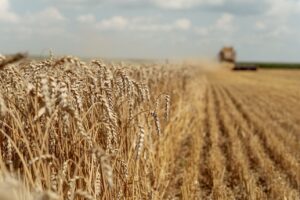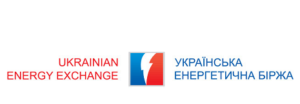
The National Agency for Asset Tracing and Management (ARMA) transferred more than $3.5 million from the sanctioned company ROYAL PAY EUROPE to the state budget, according to ARMA’s press service.
“These funds will be directed to the Fund for the Elimination of the Consequences of Armed Aggression and will be used for the restoration of the country: the construction of housing for those who have lost it, the restoration of infrastructure, the development of medical facilities, and the construction of protective structures,” the statement said.
According to reports, the exact amount is $3,572,585.29.
The press service notes that ARMA continues to ensure that seized and sanctioned assets benefit the state and bring victory closer.

Tech retailer Allo has opened Ukraine’s first official showroom for the Roborock home appliance brand, according to Allo’s director of development and format management, Mykola Astapov.
Roborock is a global leader in the vacuum cleaner category, having successfully integrated AI into its gadgets.
“Artificial intelligence has burst into our lives following the advent of a large number of smart gadgets. We work in a very interesting market, where devices are becoming “smarter” every day, helping users in their daily lives. Meet the first official Roborock Shop-in-Shop in Dnipro, based in the flagship Allo Makh store in Most City!” Astapov wrote on Facebook.
According to the Ukrainian Council of Shopping Centers, the Roborock showroom has its own sign and entrance inside the shopping center, with a 3-meter-long demonstration area and special flooring inside so that customers can test the brand’s vacuum cleaners.
Allo has been the official exclusive distributor of the Roborock brand in Ukraine since early 2025.
According to the website, as of August 2025, the chain has 286 stores in 118 cities in Ukraine.
Allo LLC was founded in 1998. According to Opendatabot, the participants of the LLC are PP Dniproinvest 2016 (95.19%), Dmytro Derevitsky (3.6%), and Maksym Raskin (1.21%). Derevitsky is listed as the ultimate beneficiary. Revenue for 2024 was UAH 10 billion 585.6 million, which is 38% more than in 2023, and net profit was UAH 27 million 133 thousand, which is 31.6% more than in 2023.

Ukrzaliznytsia (UZ), the monopoly railway operator, carried 639,700 passengers between August 18 and 24, which is 0.8% less than a week earlier, according to a statement by the company on Telegram.
“We are gradually coming out of the peak travel season, but we continue to provide detailed information on passenger traffic statistics!” wrote UZ CEO Oleksandr Pertsovskyi on his Facebook page.
Demand for the most popular route, Kyiv-Lviv, amounted to 128,000 requests last week, which is 15.2% less than the week before. The Kyiv-Odesa route received 71,700 requests, which is 22.3% less than during the period from August 11 to 17.
Demand for the Kyiv-Kharkiv route decreased by 8.6% to 63,300 searches, and for the Kyiv-Peremyshl route by 10.3% to 58,400.
According to statistics, the total volume of traffic still remains higher than last year: during the reporting week, the increase was 3.9% or 23,700 passengers.
The average number of passengers carried per car from August 18 to 24 was 467, which is 6.4% more than during the same period in 2024.
In addition, the number of passengers in children’s groups increased 1.3 times to 23,600, and the number of military personnel transported through the special reserve increased 2.4 times to 12,000.
As reported, in the first half of 2025, Ukrzaliznytsia increased passenger traffic by 1.2% compared to the first half of 2024, to 13.52 million. This is 23% more than in January-June 2023, Pertsovsky previously reported on Facebook.

As of August 22, farmers harvested 27.25 million tons of early grain and leguminous crops from 6.7 million hectares, which is 60% of the area sown with these crops, according to the Ministry of Economy, Environment, and Agriculture.
Last year, as of August 23, 32.02 million tons of grain were harvested from 8.0403 million hectares, meaning that this year’s figures are 14.9% and 16.7% lower, respectively.
According to the Ministry of Economy, 21.01 million tons of wheat were harvested from 4 million 873.1 thousand hectares (last year – 21.74 million tons from 4 million 858.9 thousand hectares), barley – 4.97 million tons from 1 million 304.6 thousand hectares (5.5 million tons from 1 million 399.2 thousand hectares).
The average yield of these crops this year is 4.31 tons/ha and 3.81 tons/ha, respectively, which is 3.5% and 3.3% less than last year’s figures.
At the same time, this year’s pea harvest is already higher than last year’s – 0.58 million tons from 258,600 hectares compared to 0.468 million tons from 207,600 hectares, and the yield is 12.8% higher at 2.5 tons/hectare.
Other grains and legumes were threshed on an area of 260.6 thousand hectares, with a yield of 685.3 million tons (0.83 million tons).
It is noted that among the leaders are, in particular, the Odessa region, which harvested 3.44 million tons from an area of 1 million 083.4 thousand hectares, Kirovohrad region harvested 2.20 million tons from an area of 533.4 thousand hectares, and Vinnytsia region harvested 2.385 million tons from an area of 423.7 thousand hectares.
According to the ministry, as of August 22, the rapeseed harvest amounted to 3.163 million tons from an area of 1 million 283 thousand hectares, while last year on August 23, it amounted to 3.36 million tons from 1 million 227.7 thousand hectares, and the average yield is 7% lower than last year’s on this date and amounts to 2.5 tons/ha.
Sunflower harvesting has begun in the Dnipropetrovsk and Odesa regions, and soybean harvesting has begun in the Kharkiv region.
As reported, in its Inflation Report published at the end of July, the National Bank of Ukraine lowered its forecast for this year’s grain harvest from 61.7 million tons to 57.9 million tons, and for oilseeds from 22 million tons to 21 million tons.
The NBU recalled that last year, the grain harvest in Ukraine fell to 56.2 million tons from 59.8 million tons in 2023, while oilseeds fell from 21.7 million tons to 20 million tons.
According to forecasts by Deputy Minister of Economy Taras Vysotsky, this year’s grain harvest will be around 56 million tons, the same as last year.

Last week, trading in August 2025, September 2025 and subsequent months continued. In total, 4 companies formed positions for the purchase and sale of natural gas: LTC Electrum, GTS Operator of Ukraine, D.Trading, and Ukrzaliznytsia.
The starting prices of resources in the mid- and long-term market section varied widely. As a result, as of Friday, the average starting price of September resources in the GTS was 3.33% higher than on Monday. Last week, only buy positions were sold. In total, 20,700.00 thousand cubic meters of natural gas were sold, 17700 of which were purchased by the GTS Operator of Ukraine. Last week’s bidders formed the following quotation prices:

In the sections “Cross-border, customs warehouse” and “Imported natural gas”, the initiators formed starting positions, but no selling prices were formed in these sections last week.
On the short-term natural gas market of the UEEX , participants placed bids on the intraday market. The deals were concluded for delivery to the Ukrainian gas transmission system. The weighted average price of the DAM on Friday, August 15, amounted to UAH 20200 excluding VAT.

European market
Gas prices declined last week. TTF futures dropped to around 32 euros/MWh. Gas stocks continue to grow, and geopolitical risks did not create a new shock in the short term. Steady gas supplies from Norway and high LNG imports offset some of the problems.
At the same time, the energy landscape was shaken by several strategic moves: Centrica and ECP (Energy Capital Partners) bought the Isle of Grain LNG terminal, Europe’s largest, for about €1.5 billion, sending a clear signal to the market about long-term dependence on imported gas, even as demand for its use in the power sector fell. In addition, Centrica has signed an agreement with the US-based Devon Energy to supply the equivalent of five LNG cargoes annually for a decade, another foundation that lays the groundwork for Europe’s energy security.
Month-ahead contracts at all analyzed hubs showed a different trend relative to spot prices, with an average increase of 1.64%. Quarter-ahead prices were higher than spot prices by an average of 4.68%. The season-ahead prices with an average value of 35.50 EUR/MWh tended to increase compared to the spot prices by an average of 5.77%.
September futures for LNG in Asia, the JKM Platts Future index, settled on August 14 at $426.38 per thousand cubic meters. US dollars per thousand cubic meters. The futures for LNG delivered to Northwest Europe (LNG North West Europe Marker) closed at $393.80 per mcm. US $/thousand cubic meters.
European LNG terminals operated on August 13 with an average capacity of 79.81%.
LNG stocks in the EU as of August 13, 2025 amounted to 4.336 million cubic meters, according to the Aggregated LNG Storage Inventors.
The storage level of the largest LNG exporter, the United States, according to the latest EIA data as of August 8, 2025, was 3.186 billion cubic feet, which is 6.6% higher than the average for the last five years.
This week, oil prices have declined – for example, Brent is trading in the range of $66-67 per barrel. OPEC+ has announced a significant increase in production (over 500 thousand barrels per day since September), and the imbalance between supply and demand is beginning to be smoothed out as the peak supply season gradually ends.

The meeting between Trump and Putin in Alaska is putting the market on edge. If sanctions against Russia are eased, prices could move downward, even to below $60 per barrel. On the other hand, if the opposite is true, the confrontation will escalate, and prices could jump up, approaching or even surpassing $80-90 per barrel.
Gas balance in Ukraine
During the week, natural gas imports from Europe averaged 21 million cubic meters per day (1 million cubic meters higher than the previous week), from Hungary, Poland, Moldova, and Slovakia. The Hungarian direction was mainly used, although the share of other directions remained high. Ukraine’s storage facilities held about 10.4 bcm. There was virtually no withdrawal. Injection amounted to about 51 million cubic meters per day.
Interesting things for the week
For the first time, a €500 million loan for gas imports to Ukraine is provided under the EU’s UIF Hi-Bar program , which does not require a Ukrainian state guarantee, Gas United reports. The UIF – Ukraine Investment Framework – is the investment component of the Ukraine Facility program for the rehabilitation of energy infrastructure. The financing was launched at the URC-2024 in Berlin. The EBRD provided the funds for gas imports under the Hi-Bar facility, which aims to remove barriers to mobilizing the financing needed to accelerate the transition of the energy sector to net-zero, which involves the maximum possible reduction in greenhouse gas emissions.

The historic Qutub Minar tower in New Delhi was illuminated in blue and yellow on the evening of August 23–24 in honor of National Flag Day (August 23) and Ukraine’s Independence Day (August 24). The event became a symbol of solidarity with the Ukrainian people; photos and videos of the illumination were posted on the embassy’s social media pages and website. Indian media also reported on the event: Ukrainian Ambassador to India Alexander Polischuk thanked the organizers, noting that the illumination was “another sign of support” for Ukraine;
The event took place despite the rain.
Previously, similar Qutub Minar lighting events were held on international dates and anniversaries, making the monument one of the venues for public diplomacy in the Indian capital.